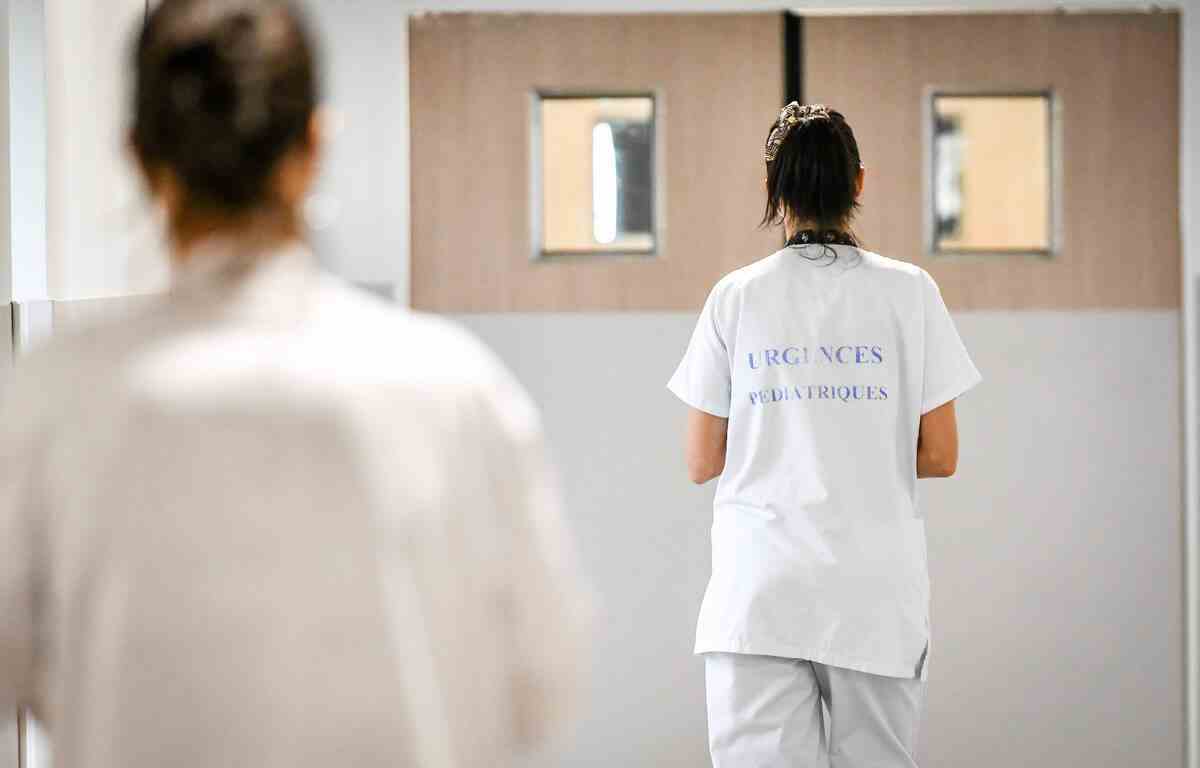As Léonard Corti returns from a week’s vacation, he suffers a panic attack. For four hours, the medical intern has palpitations at the thought of returning to the hospital. The young man is in full burn-out and will end up being arrested by his general practitioner. One example among many others among interns, these medical students who, after their 6th year of study, do internships for three to five years in different departments. They are 30,000 in France and are particularly exposed to the risk of burnout. The numbers prove it. Two-thirds (67%) of medical students report having burnout syndromes, according to a study by the National Intersyndicale des Interns (Isni) published in 2021.
If burn-out is not considered as a disease but as a syndrome linked to physical and nervous fatigue, it can turn into a more serious pathology such as depression or an anxiety disorder, or even into suicidal thoughts. As we know, burnout affects more people who are very invested in their work, especially if it involves strong emotional demands. This is the case of interns, constantly confronted with suffering and death. If we cannot play on this last risk factor, the others “are not inevitable”, according to Gaëtan Casanova, president of Isni. “They are modifiable but it requires a little political courage. »
A work overload
“Interns combine all the risk factors for burnout,” recalls Laurence Feray-Marbach, president of the League for the Health of Medical Students and Interns (Lipseim). The first is obviously the work overload. “We work an average of fifty-eight hours a week at the hospital, in addition to research work and courses to work on”, explains Léonard Corti, intern in anesthesia and resuscitation and president of the Union of Paris Hospital Interns (SIHP) . In surgery, the average rises to seventy hours per week, according to Gaëtan Casanova. “These working hours are not trivial hours,” adds the president of Lipseim. “There are staggered hours, night guards. »
When Léonard Corti had a burn-out, he had just done seven guards in the month. Twenty-four-hour work shifts during which he didn’t sleep. However, there is a linear correlation between the number of hours worked and the occurrence of dark thoughts. “My daughter burned out during her internship and she got to such a degree of anxiety that she committed suicide,” says Laurence Feray-Marbach, who has since set up her association. Duty rosters were indeed announced by the Minister of Health, Olivier Véran, in May 2021 in order to count working time and limit it to a maximum of forty-eight hours per week. But, according to all the unions questioned, these tables are not used.
A great responsibility… for little autonomy
“We doctors have the greatest responsibility that exists in our hands: people’s lives,” recalls Gaëtan Casanova. But this responsibility comes up against a lack of autonomy because interns do not choose their pace of work and change internship sites every six months. “The interns cannot leave”, recalls Laurence Feray-Marbach. Yet this is the strategy adopted by other hospital staff members faced with burnout.
“We are in an inextricable situation where we are asked to accomplish a certain number of missions but we no longer provide the means to carry them out satisfactorily. As a result, we realize them badly and we feel guilty, ”says Léonard Corti, who wrote the book In the hell of the hospital (Editions Robert Laffont) in which he denounces these working conditions. A situation that helps to precipitate burnout. Just like the lack of solidarity between colleagues. The president of the SIHP remembers two interns, arrested for burn-out, who received abusive messages from their fellow interns who found themselves doing all the call duty. “There is a lack of benevolence between the interns themselves”, laments Léonard Corti.
Interns not trained to recognize burnout
Surprisingly, burnout is not addressed in the medical curriculum because it is not recognized as a disease. “Students are not trained to recognize the signs of burnout,” confirms Léonard Corti. The intern has just completed training on the subject organized by Laurence Feray-Marbach. Since then, he has diagnosed two burnouts in co-interns, which has allowed them to rest and get better.
If it is important to know the risk factors and symptoms of burnout, it is above all to prevent the risks of burnout, depression and suicidal thoughts, but also to protect patients. Beyond the fact that extreme fatigue can lead to medical errors, you should know that one of the symptoms of burnout is cynicism, insensitivity to the surrounding world and dehumanization of the relationship with others. . Which is problematic for a doctor… Hence the importance of diagnosing it in time.
To subscribe to our “Ma tête et moi” program and receive all the new episodes, it’s over there.

